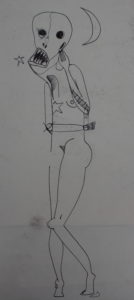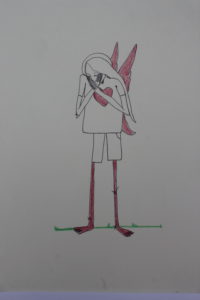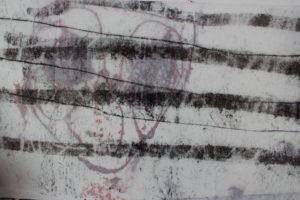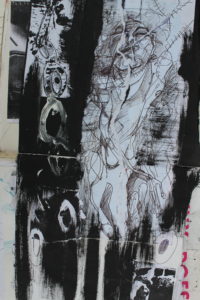Often when people hear about people with addiction, or in recovery, they are most curious as to what they are in recovery from; rather than the what happened to the individual that required an addiction to survive.
Whatever someone’s drug, process, substance of choice, is to a certain extent irrelevant and even at times a distracting smokescreen. (Though substances and behaviours provide useful diagnostic information as to the underlying nervous system states that this self medication is trying to manage). Addiction is a symptom that points to trauma, and is in fact only one of the many symptoms. Fighting with addiction will most often not heal the underlying cause. Addicts are attempting to out-source an inner sense of self, being, love, peace, safety, security, regulation, resilience, connection, self esteem and ease, and need to be reconnected to a stable and reliable experience of that.
Addiction is a widespread epidemic…The frame and environment our children develop within: our social, educational, familial, economic structures – the values they are based upon – our management of our own experience and thought process and way of experiencing (and responsibility or lack thereof for) the self and the way we are in relationship to each other and children is often challenging on an emotional and physiological level and suboptimal for human development and secure attachment, sense of self and self regulation. Consequentially addiction is becoming more and more prevalent. Trauma has become institutionalised – has woven itself into our systems and identities, a heritage passed on through thousands of years of unaddressed inter personal and systemic covert and overt abuse and neglect.I believe for this very reason, the recovery and healing of self as one recovers from addiction needs to feed back into the collective, addressing and reforming systems to become more competent in supporting the healthy development of human beings in order to address the disconnect that carries on contributing to this widespread epidemic. Addiction is a wide spread social condition, and needs to be addressed on a collective, structural level, as well as an individual one.
But for the individual suffering from addiction, individual, let alone collective healing, seems nothing short of a miracle. You will notice that for yourself, or for those you are close to that have struggled with addiction, that dramatic health consequences, unmanageable living conditions and life circumstances, broken relationships, loss of home or work, a set of ideals, values and even a strong desire, or desperate need to quit can have little effect.
Addiction’s roots were set down long before the cycle of addiction and compulsion that arose and became visible. The roots of addiction are unfeelable, unbearable feelings and experiences that are, in the moment they happened, too much for the system, and the individual needs to find a way to seperate: compartmentalise, distance and escape these experiences and the subsequent sense of self and other. Addiction arose as a result of the need for a solution.
Addiction happened when we could not find safe and regulating connection or manage to regulate due to abnormal circumstances – when our nervous systems got overwhelmed and fixated, our heart shut down, we disconnected from ourselves and the world – human and natural and spiritual – and in order to carry on living we had to outsource a sense of being alive. We shut ourselves off from our real selves and real life and needed something artificial to take its place, to get to the point when we could address the shut down.
When viewed in this way, addiction can be a bridge to life, as well as a bridge to death. When looked at as a bridge to life, addiction can act as a time capsule that held you safely away what would break you until you had enough resources to unpack it – to be brought out of your capsule, move through what was stored away and release it.
Your addiction has helped you get to this point, helped you manage and organise feelings and experiences that you did not have the resources to live through.
BCST works with a deep and unwavering appreciation of the intelligence of the system, and I have found that working this way with addiction reduces the shame and self hate that can keep us blocked and unable to let go of addiction as ‘resource’ and find other resources that support us better.
I am not underling the seriousness of addiction by offering the possibility of care and appreciation towards addicted parts of ourselves. Addiction was something that at first we maybe thought we had control over, or weren’t even conscious we were stepping in to. Maybe at first it was a set of tools we thought we owned, but came to own us…. came to control every aspect of our lives: body, mind, actions.And when we leave ourselves in addiction, essentially we are leaving you’re traumatized parts of us not only running our adult lives, but these younger traumatized parts are left still unregulated, terrified, disconnected, overwhelmed, unloved and uncontained.
Appreciating the great intelligence and resilience, courage and creativity and the suffering these parts have been through does not mean we support and facilitate the way THEY HAD TO originally take care of themselves as a viable solution for our present adult life, where we have alternative choices.
Addiction is a tortured state of self: the world is a painful place to live in, relationships are painful, feelings are painful, how we experience and see ourselves is painful. We need a remedy, and we find one: in alcohol, drugs, relationships, sex, disordered eating, shopping, gambling, violence, and so on.
The great news is that that pain can be your medicine, the burning fuel that creates a direction and a path for you to walk, that gives you the energy and desire for each step, as you move deeper and deeper into a reconnection with all that you are and learn to hold it with love.
Recovery means recovering our responsibility for our lives, recovering a sense of self that is true, not blended with an individual and collective smog of trauma, or saturated in socialized norms of guilt, blame, self hate, etc. Recovery means thinking of ourselves less and others more, but just thinking less in general! Escaping the turret of the mind and living, being in sensation and connection. Recovery means freedom: freedom to choose again. Recovery means reconnection: reconnection to the source of our being that can power, guide, energise us and love us through our daily lives. Recovery is surrender, surrendering into ease, grace, into finally doing for ourselves what we have spent our lives trying to get others, substances, situations to do for us: to be there, constant, permanent, supporting, kind attentive, caring for and responding to how we feel.
Recovery is learning how to reduce the demands and expectations of self, letting the Breath of Life -a Higher Power – God – Life – Love – whatever we know it as – guide and inform and live through us. Recovery is relearning who we are. We are not what happened to us, nor how we coped with it.
There are many recovery paths – whether it is through yoga, through community, a 12 step program: but Recovery is an experience once again of the interconnected, larger self: the self that is love, that is truth, that is free, that is whole.
Our hearts and sense of self expands. We are not limited independent creatures –we inter-be, inter-are. Creating happiness for others creates happiness for us. We depend, we need others: the elements that make up the natural world, our communities of beings.
Addiction recovery can then feed back into rebuilding communities and cultures that can address and heal their collective trauma and that as a consequence create structures and models -of education, work, relational and communial and so on, that really work for us all.
Once we recognise the impact of neglect, abuse, mis-atunement, poverty, etc. on ourselves and recover our health, we might be moved into greater social activism, with more awareness to see the institutionalised racism, sexism and discrimination, as well as current socialised practices which create distress for our fellow human beings and the planet. The fate of factory farmed animals, of polluted waters and dieing sea life, of on-going sexism, child abuse, homophobia and racism – become our pain – a pain that we can be an empowered part of building a solution for. Our individual healing extends into societal healing. Our addiction served us to keep our pulse going through what was unbearable. It serves us as a doorway through to our deeper self and connection to spirit. And it further serves us as a hand reaching out, helping to create kinder conditions for all beings.



